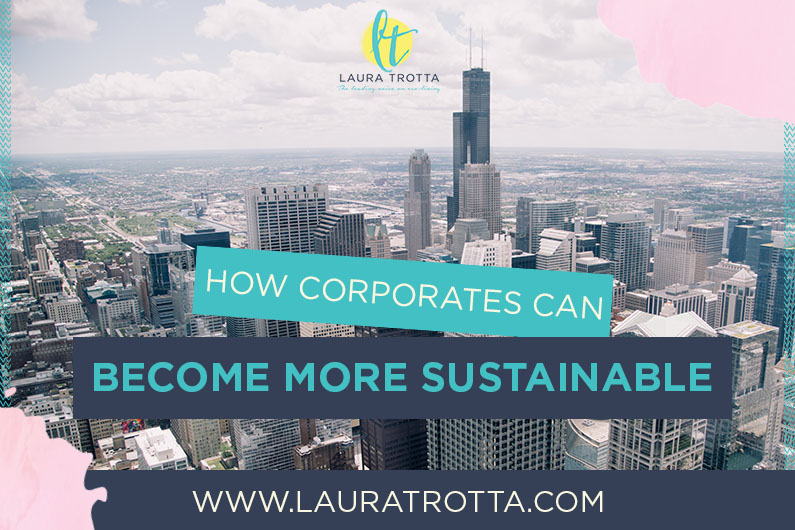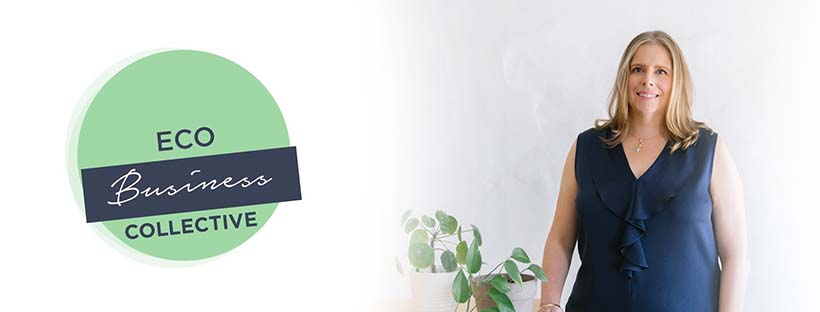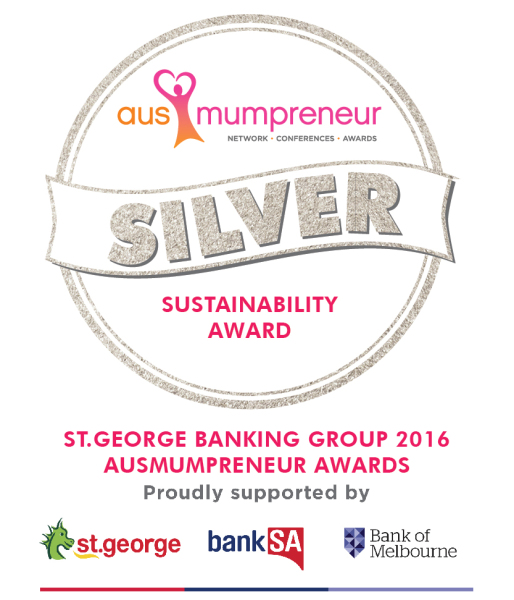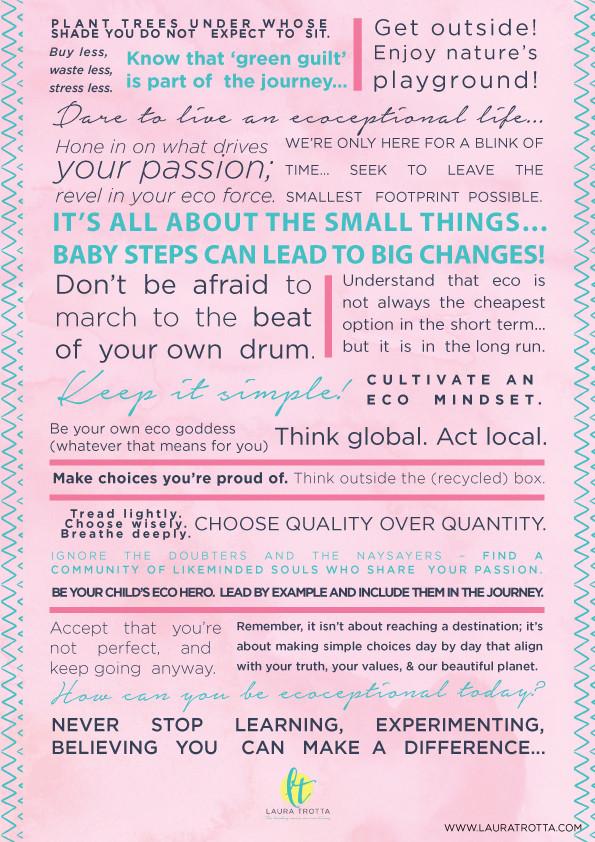Money does indeed make the world go round and the type of businesses that we invest in today creates the world of tomorrow. Notwithstanding, the corporate world has a huge role to play in shaping the kind of world we live in.
The traditional mindset of corporates to maximise returns for shareholders is redundant and these days, only companies that are sustainable in the true sense of the word will survive. Think sound environmental practices, a strong human rights record and an inclusive and diverse workforce where every employee can bring their best selves to work.
In this episode I’m chatting all things corporate sustainability with Dr Kaushik Sridhar.
Kaushik shares how he went from being a professional tennis player to a corporate leader in sustainability, what the current state of play of sustainability is in the corporate world and tips and strategies for corporates to become more sustainable.
Podcast: Play In New Window
Subscribe in Apple Podcasts | Stitcher | Spotify
Could you share your story and how you went from being a professional tennis player to a corporate leader in sustainability?
I’m thinking about how exactly I made that shift, because they’re completely on different ends of the spectrum!
When I was 8, I picked up a tennis racket in Nigeria, which is where I grew up and became quite good at it, and then went to the United States on a tennis scholarship. So from a very young age I was playing around the world, acheived a reasonable ranking, played College tennis in the United States and ultimately came to Australia to work as a tennis coach in Albury Wodonga. But by 2006- 2007, I actually lost my passion and my interest for tennis, because when you do something a lot, and you’re not very good at it, and you lose a lot, sometimes it can take a lot out of you. And so my my interest, my passion, my desire to play tennis pretty much evaporated in 2007. So I called it quits, made a decision to come to Sydney actually to do an MBA at Macquarie.
In 2008 the transition happened, when during my studies, there was an internship opportunity with an American listed it company to develop a carbon footprint measurement tool for them. And believe it or not, I actually rejected the internship three times because I didn’t know what sustainability meant. I frankly, could care less at the time because of my lack of understanding about what sustainability meant and because I wanted to move towards a more marketing career path. However, I was eventually convinced to do the internship and subsequently started doing my PhD, and that’s when I realised there’s something here. There is something about this topic, this subject matter, that I really connected with and I knew I could have a significant impact as opposed to working in a different profession.
I wake up with a smile, I absolutely love what I do. And I could not have picked a better profession to work in. I think the younger generation they’re not just looking for any job, they’re looking for a job where they could have an impact. And that’s what I always talk about when I talk to my mentees or to grads, etc. And I feel very lucky and blessed to have been actually dropped into this opportunity by accident, rather than me chasing it.
What is the current state of play of sustainability in the corporate world?
Think about it this way. You have a stool with three legs. You’ve got economic, which is about your financials and economic impact. You’ve got your environmental which is your environmental footprint, your biodiversity, your waste, your energy, and then you’ve got your social bottom line. So a stool with one leg missing, ceases to be a stool, and so I think these three pillars are quite integral to what a definition of sustainability or corporate responsibility is.
From my perspective, I’ve worked in corporate in a corporate role for a number of years and the leaders in the field understand that sustainability has a key role to play in tackling issues like human rights or climate change. But many of them also believe that pursuing a sustainability agenda, potentially can run counter to the wishes of their shareholders. So there are some heads of large investment firms that say they care about sustainability when in practice, you know, investors, portfolio managers, they rarely used to engage executives on ESG, or environmental, social and governance issues. So the impression among business leaders is that sustainability or ESG, hasn’t gone mainstream in the investment community, but that perception is outdated.
And it’s increasingly becoming outdated shareholders, stakeholders, whatever you want to call it. They’re very, very serious about sustainability. And I’m seeing this firsthand, internally and externally, whether it’s investors, whether it’s community groups, not for profits, employees, whatever it might be, but ESG has become a much more important issue, especially for long term investors.
But to answer your question, or to add to it, people might be thinking, what’s driving that change? And I think the demand for ESG, or sustainability investment options is so high. Many asset management firms are rushing to develop offerings, for example, I think UBS Asset Management, have more than tripled the amount of assets under management under ESG funds. I think currently it’s at $17 billion.
The other one would be activism by investor. The number of environmental and social shareholder resolutions, especially in America have grown by 50%, just over the last couple of years.
The last thing that I would add is fiduciary duty. It’s one thing that I looked at in my PhD. There’s a mistaken belief that sustainable investing means sacrificing some financial return, thereby ignoring ESG factors, which can affect the financial returns as well. But if you look at more recent times, there’s more legal opinions, regulatory guidelines, making it clear that it is a violation of fiduciary duty if you don’t consider sustainability, or ESG factors as part of the overall assessment. And Europe’s a wonderful place to actually do case studies and look at how governments have imposed ESG fiduciary duty on pension funds, trying to be more exemplary in the field of sustainable investment
ESG has gone from being a buzz word just a couple of years ago to mainstream sustainability speak. What does ESG mean and why does it matter?
In order to explain what ESG means we’ll take a step back and think about Milton Friedman’s 1970 essay “The Social Responsibility of Business is to Increase its Profits.” Since then, and picking up a lot of speed in recent years, there has been a wider shift, or a wider understanding of how corporate decisions can affect multiple stakeholder groups, not just shareholders.
And in 2019, this philosophical shift culminated in the Business Roundtable when they announced the realise of a new Statement of Purpose of a Corporation signed by 181 CEO’s who committed to lead their companies for the benefit of all stakeholders – customers, shareholders, suppliers, employees and communities. That was the kind of the evolution at that time, in the half century between these two conceptual landmarks. CSR (corporate social responsibility) as a terminology was born. As was another aspect of CSR, called corporate citizenship, which means operating in ways that do not negatively affect the wider community. So ideally business would have a positive impact on all those stakeholders.
I guess where I’m going with this is rather than looking at sustainability and ESG, I’m actually trying to provide a distinction between CSR and ESG, because that helps me set the scene better. Without CSR, there would be no ESG. But the two are far from interchangeable. So while CSR or even sustainability, makes a business accountable, ESG and ESG criteria makes a company’s efforts measurable. And that’s really important to note, With CSR activities, they vary quite massively between different businesses, different sectors, sometimes there’s a lack of comparable metrics available, whereas ESG activity, on the other hand, is generally quantifiable to a much greater degree.
So if you look at impact investing, as an example, the rise of impact investing has led to demand for ways to rank companies on their ESG performance. Last time I checked there were 600 plus ESG rating agencies around the world. So ESG ratings and scores have been developed, targets are set and reported on.
For me the power of ESG lies in its integration to a into a business and the momentum behind ESG is being driven by asset managers, consumers and employees demanding transparent, purpose led businesses that align with their own practices.
What advice would you give to a company that is seeking to improve its sustainability performance? Where should they start? How does a corporate become more sustainable?
Fundamentally sustainability programmes, they set organisations up for success. And I remember reading a report a while ago, it was a report from a large consultancy, which looked at more than 200 global executives, and they found that 75% of the executives believed that successful execution of a sustainability strategy will provide a competitive advantage. But only 30% of that group actually believed they were successfully executing on those strategies. When you think about how do you translate ambition into actionable results? I think that’s the bit that can get a little bit tricky.
Firstly, sustainability must be at the core of every organisation. I say this from experience working with the whole different range of corporates and universities, you can tell the difference when it’s not at the core. And it can become a bit of a tick box exercise. It’s got to be driven, communicated and championed from the executive level. They need to be willing to take chances and innovate. Millennials are taking a stand on a lot of these issues and they’re the future workforce, the future leaders . We want to make sure we are aligned with the definition of purpose for them
Secondly , as I said before, while we’ve seen an uptick in netzero commitments and carbon neutral commitments. To be truly successful, I think companies potentially want to think about shifting from carbon neutrality to carbon regenerative, which is a process that restores renewable revitalises an organization’s own sources of energy or materials. So a company like Interface Carpet, for example, demonstrates how sustainability is becoming strategically integrated not only into a company’s operations, but extending it to its products, and its services in a way that actually benefits the communities.
And the last one that I’ll mention is collaboration. This word gets thrown around a lot, but I think it’s really important. Companies need to reframe their mindsets when it comes to collaboration. Yes, the business world is competitive by nature. But if you want to really achieve a true sustainability transformation, the silos have to be broken down not just within a company, but within an industry and, and within a nation, etc. helping to facilitate more private public partnerships. I think those sorts of efforts will drive change in a way that we may have once considered unrealistic.
Can you share some examples corporate companies who are performing well in this space? What is it about their approach that sets them above others?
Unilever is one that really pops to mind. Paul Polman, was a very influential CEO of Unilever. They’ve got so many brands and are probably in every household in some form or another. You can see the amount of power they have. But with power comes great responsibility. Unilever have the Sustainable Living Plan and have made three main goals for their sustainability efforts. I think one was to help more than a billion people take action to improve their health by 2020, another was about enhancing the livelihoods of millions by promoting fairness in the workplace. There was a lot of pushback about whether people would be willing to pay a premium for sustainability products or sustainable products. But that business did grow at twice the rate of others. So I think Unilever is a pretty awesome example.
IKEA is another great example. They’ve introduced lots of new products to aid people in cutting their energy and water. The company introduced lots of sustainable materials to their production processes. We don’t want to lose sight of the commercial aspect of sustainability. It’s important to be good to the environment and good to the community. But these businesses are a business at the end of the day. And sustainability actually has a big role to play in focusing on environmental social impact, but with potential significant operational savings, or revenue for these particular businesses.
How do you see the requirements and expectations of corporate sustainability changing in the future?
Good question, it takes me back to COVID-19, when we were just thinking about the effects of the pandemic on the planet, on humanity, on sustainability, etc. But I think it’s fair to say that it’s really disrupted the way many businesses across the world operate. In the span of a few weeks, workplaces went remote, meetings were paused and these sorts of shifts proved very effective in controlling the spread of the virus. They also had a significant impact around carbon emissions, air pollution, congestion, transport emissions, etc. COVID-19 brought about one of the first big drops in emissions in over a half a century. About 5%. This isn’t the way we want to be achieving it, and highly unlikely that these declines will last, but I think this is a good time to start thinking about avoiding the bounce back effect of pollution spiking again. What policies can carry through to protect the planet after the pandemic passes? You know, whether it’s a clear work from home policy, whether it’s green transportation options, infrastructure, whether it’s conducting an audit of your buildings to ensure they’re operating at the highest efficiency standards. I don’t know what the right answer is. I think the World Bank actually notes that in the aftermath of the pandemic, one of the key focuses will be on stabilising the world and its economy in the long term. And that means, I think redesigning subsidies to shift dependence away from fossil fuels and towards renewable energy renewables is huge, and making significant investments in sustainable transit infrastructure and environmental remediation projects across sectors.
Where can listeners follow you online?
I am a avid writer. On my website https://kaushiksridhar.com/ I have a blog with articles around ESG sustainability, even wellbeing and happiness, because I’m a very happy guy. So people are more than welcome to come and check out. I’m also on LinkedIn.
Connect with Dr Kaushik Sridhar on LinkedIn
Over to you!
If you’re growing an eco business and want support with the digital marketing AND sustainability aspects of your business, I encourage you to check out my Eco Business Collective. Eco Business Collective is where I combine my extensive environmental engineering and business experience to support a growing number of entrepreneurs to make their eco businesses more sustainable and more profitable. Members receive personalised coaching support from me and a network of connections to help them grow a thriving and profitable eco business online.
About Dr. Kaushik Sridhar
Born in India and raised in Nigeria, at the age of 13, Kaushik (left his parents and) joined the John Newcombe tennis aca
demy in Texas, USA. He travelled the world competing on the professional tennis tour for many years before moving on to pursuing a university degree.
After completing his Bachelors degree in South Carolina, he was contacted by an Australian tennis legend and invited to work at her tennis academy in Australia. Eventually he stopped my tennis career in 2007 and moved to Sydney where he pursued my MBA and PhD focussing on sustainability management and reporting.
It was in 2008 that he decided to pursue a career in helping businesses become good corporate citizens be helping them reduce their negative impacts on the environment and increase their positive impacts in the community, all while keeping an eye on the financial bottom line.
Fast forward 13 years (including corporate roles at Unisys, EY and KPMG, non-executive director positions on three not-for-profit boards, publishing over 28 papers in international peer-reviewed journals and magazines and presenting at over 30 conferences, expos and festivals across Auckland, Bangkok, Brisbane, Melbourne, Paris and Sydney) he now leads the sustainability efforts for an ASX-listed Australian company while also lecturing at various leading Australian universities and coaching startups in La Trobe University’s Accelerator program.
Like this episode? You’ll also love….
[155] How to Offset Your Carbon Emissions
[157] How to Grow a Green Business
- Sustainable Home Design- factors to consider to maximise sustainability - July 28, 2022
- Advantage and Disadvantages of Tiny Houses - May 31, 2022
- How School Strike 4 Climate is Empowering Youth to Fight for Their Future - May 1, 2022




 Laura Trotta is one of Australia’s leading home sustainability experts. She has a Bachelor of Environmental Engineering, a Masters of Science (in Environmental Chemistry) and spent 11 years working as an environmental professional before creating her first online eco business, Sustainababy, in 2009. She has won numerous regional and national awards for her fresh and inspiring take on living an ‘ecoceptional’ life (including most recently winning the Brand South Australia Flinders University Education Award (2015) for the north-west region in SA and silver in the Eco-friendly category of the 2015 Ausmumpreneur Awards). With a regular segment on ABC Radio and with her work featured in publications like Nurture Parenting and My Child Magazine, Laura is an eco thought leader who’s not afraid to challenge the status quo. A passionate believer in addressing the small things to achieve big change, and protecting the planet in practical ways, Laura lives with her husband and two sons in outback South Australia.
Laura Trotta is one of Australia’s leading home sustainability experts. She has a Bachelor of Environmental Engineering, a Masters of Science (in Environmental Chemistry) and spent 11 years working as an environmental professional before creating her first online eco business, Sustainababy, in 2009. She has won numerous regional and national awards for her fresh and inspiring take on living an ‘ecoceptional’ life (including most recently winning the Brand South Australia Flinders University Education Award (2015) for the north-west region in SA and silver in the Eco-friendly category of the 2015 Ausmumpreneur Awards). With a regular segment on ABC Radio and with her work featured in publications like Nurture Parenting and My Child Magazine, Laura is an eco thought leader who’s not afraid to challenge the status quo. A passionate believer in addressing the small things to achieve big change, and protecting the planet in practical ways, Laura lives with her husband and two sons in outback South Australia. 


